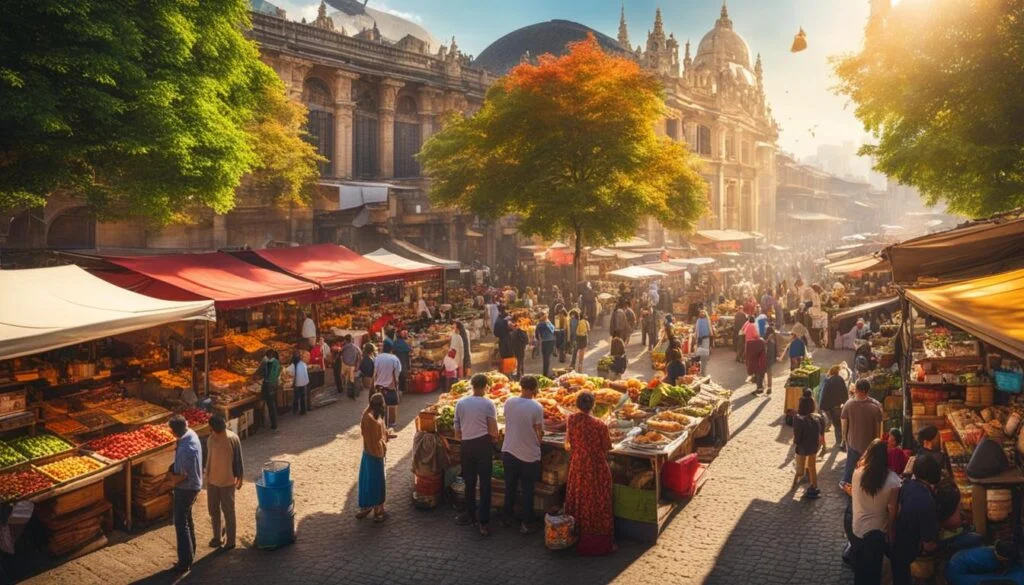Why Visiting Local Markets is the Best Way to Understand a Culture
Traveling offers countless ways to indulge yourself in a new culture, but few experiences rival the authenticity and vibrancy of a visit to a local market. Markets are the heartbeat of communities, showcasing their daily rhythms, flavors, and traditions. Whether you’re wandering through the bustling bazaars of Marrakech, sampling fresh produce in a French village, or bartering for textiles in Bangkok, markets offer a sensory-rich gateway to understanding a culture.
Here’s why visiting local markets is an unparalleled cultural experience.
1. A Feast for the Senses
Taste
Markets are culinary treasure troves. They offer an opportunity to savor authentic, regional dishes prepared by locals. Sampling street food, such as spicy tacos in Mexico, dim sum in Hong Kong, or fresh fruit in Thailand, reveals the heart of a region’s food culture.
Sight
The vibrant colors of produce, handmade crafts, and traditional attire provide a visual tapestry of the culture. Markets are often beautifully chaotic, reflecting the creativity and resourcefulness of the community.
Sound
The lively chatter of vendors, the call of street hawkers, and the hum of conversations create an atmosphere that is uniquely tied to the location.
Smell
The scent of freshly baked bread, exotic spices, or blooming flowers paints a vivid picture of local preferences and culinary staples.
Touch
The tactile experience of feeling handwoven fabrics, pottery, or fresh ingredients connects you directly to the craftsmanship and agriculture of the area.
2. Markets Are Cultural Crossroads
Markets are meeting points for people from all walks of life, from farmers and artisans to urban professionals and tourists. They provide a snapshot of the community’s diversity and give insight into how locals interact, negotiate, and conduct business.
For example:
- In Turkey, the Grand Bazaar in Istanbul reveals the country’s historic role in trade and its rich tradition of hospitality.
- In Ecuador, the Otavalo Market highlights the artistry of the indigenous Otavaleño people, who proudly preserve their heritage through crafts and textiles.
3. Uncover Regional Identity and Traditions
Markets reflect the unique characteristics of a region. Whether it’s the spices of India, the fresh seafood of Japan, or the artisanal cheeses of France, local products reveal what is valued in a particular culture.
- Seasonal Foods: The availability of seasonal ingredients highlights the importance of nature and agriculture in local life.
- Festive Goods: During holidays or festivals, markets are often adorned with special decorations and goods, offering a glimpse into cultural celebrations.
4. Support Local Economies
Visiting markets is a direct way to contribute to the local economy. By purchasing goods from small-scale vendors, farmers, and artisans, you’re empowering individuals and preserving traditional crafts and trades.
- Handmade Crafts: Buying souvenirs directly from artisans ensures that your money supports their livelihood.
- Farmers’ Produce: Purchasing fresh fruits, vegetables, or baked goods promotes sustainable, community-based agriculture.
5. Engage with Locals
Markets are places of connection. Engaging with vendors—asking about their products, listening to their stories, or learning about how items are made—fosters meaningful interactions that transcend transactional exchanges.
Even if you don’t speak the language, smiles, gestures, and shared enthusiasm for their offerings can create memorable moments.
6. Explore Cultural Practices and Etiquette
Markets often operate with unique customs and etiquette that reflect cultural norms. Observing and participating in these practices can deepen your cultural awareness.
- Bartering: Common in markets across Asia, the Middle East, and Africa, bartering isn’t just about the price; it’s a social interaction.
- Market Manners: In Japan, tasting samples at markets often involves gracious expressions of thanks, reflecting the culture’s emphasis on respect.
7. A Window into Daily Life
Markets provide a rare glimpse into everyday routines. Watching how locals shop, what they prioritize, and how they interact offers a deeper understanding of the culture’s values and pace of life.
- In Italy, the morning markets are lively with locals buying fresh ingredients, highlighting the importance of home-cooked meals.
- In Morocco, souks buzz with activity late into the evening, reflecting the social nature of shopping and trade.
8. Learn Through Observation and Participation
Markets are also educational. From discovering how spices are blended to seeing traditional cooking methods, they offer hands-on learning experiences.
For instance:
- Cooking Classes: Many markets now offer cooking tours or classes that teach visitors how to prepare local dishes using fresh ingredients.
- Craft Demonstrations: Watching artisans at work—whether weaving in Guatemala or carving wood in Bali—shows the skill and effort behind their creations.
9. Capture Authentic Moments
For photographers and storytellers, markets are an endless source of inspiration. The vibrant colors, candid interactions, and layered textures create stunning visuals that encapsulate the essence of a place.
10. Create Lasting Memories
The memories forged in local markets often outshine those from typical tourist attractions. Whether it’s tasting something new, finding the perfect handcrafted gift, or sharing a laugh with a vendor, these moments become highlights of your journey.
Tips for Visiting Local Markets
- Arrive Early: Morning visits often reveal the freshest goods and quieter moments.
- Carry Small Bills: Vendors may not always have change for large denominations.
- Ask Questions: Show interest in the products and the stories behind them.
- Respect Customs: Learn the etiquette specific to the region, such as when bartering is appropriate.
- Be Mindful of Photos: Always ask permission before photographing people or their goods.
Conclusion
Local markets are more than just places to shop—they are cultural hubs that reveal the soul of a community. They offer a chance to taste, see, and feel a way of life that might otherwise remain hidden to tourists.
The next time you travel, take the time to visit a local market. You’ll not only leave with unique souvenirs and flavors but also with a deeper connection to the culture and people who call that place home.

